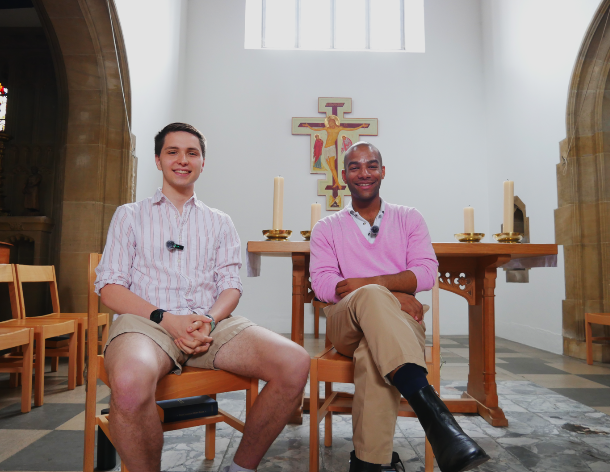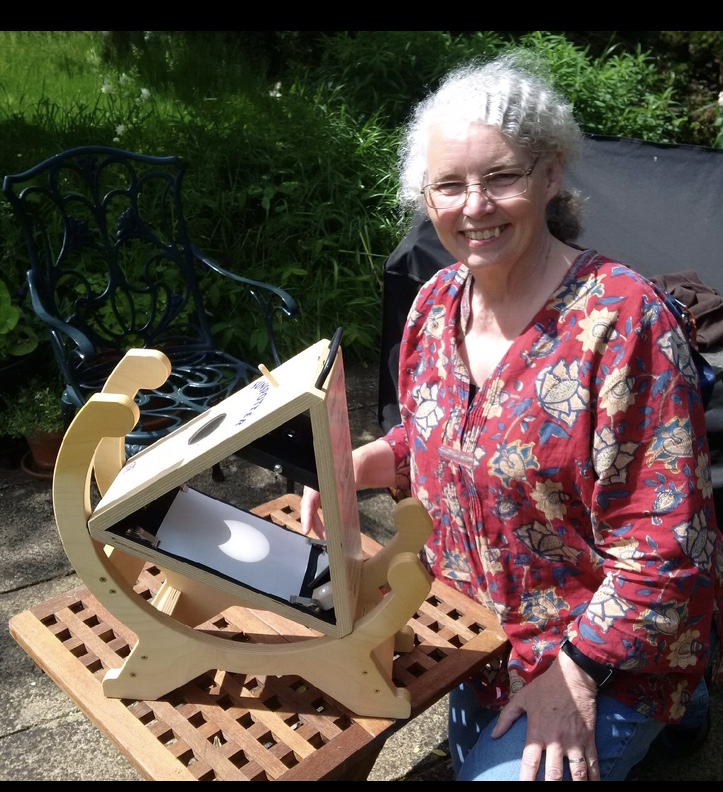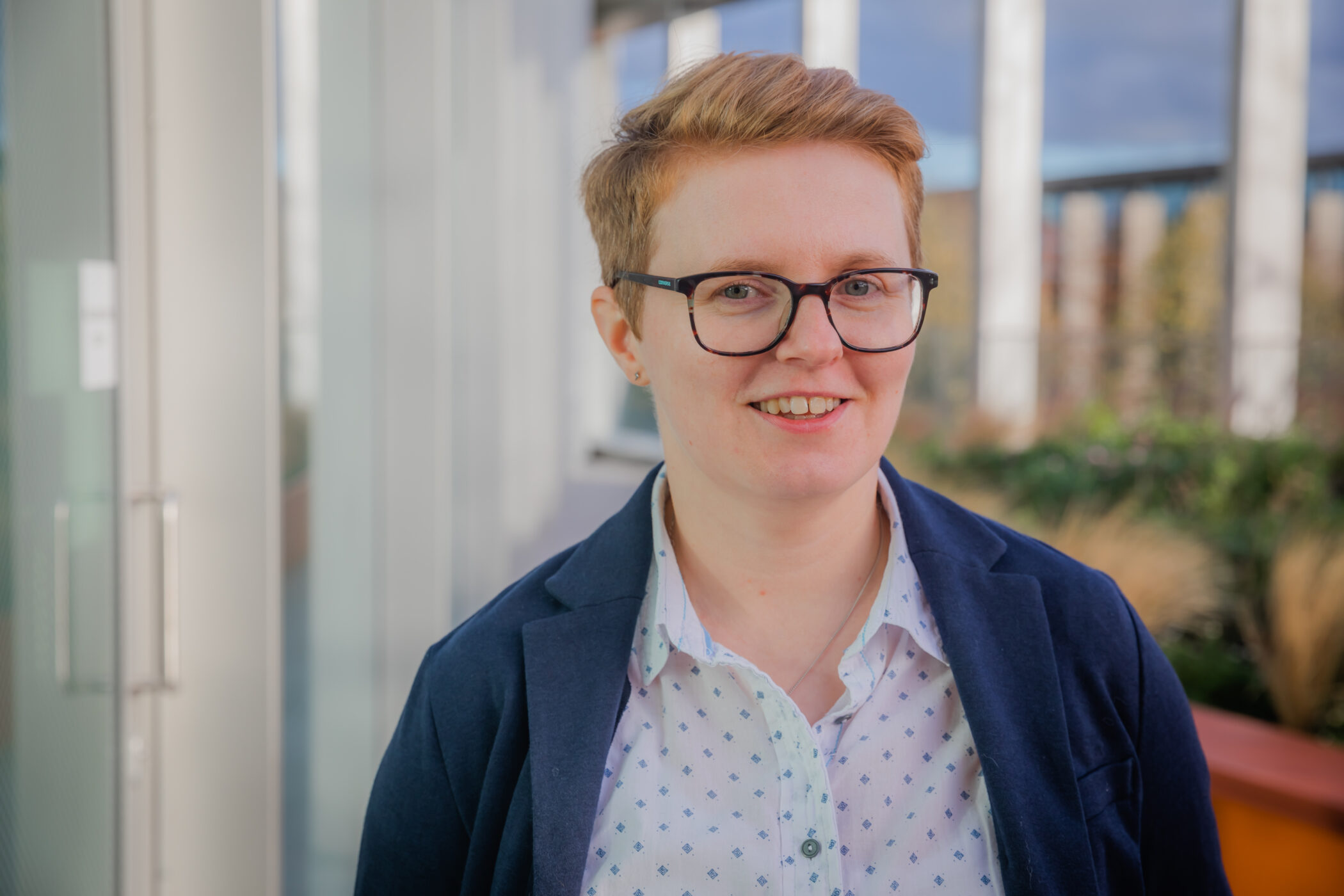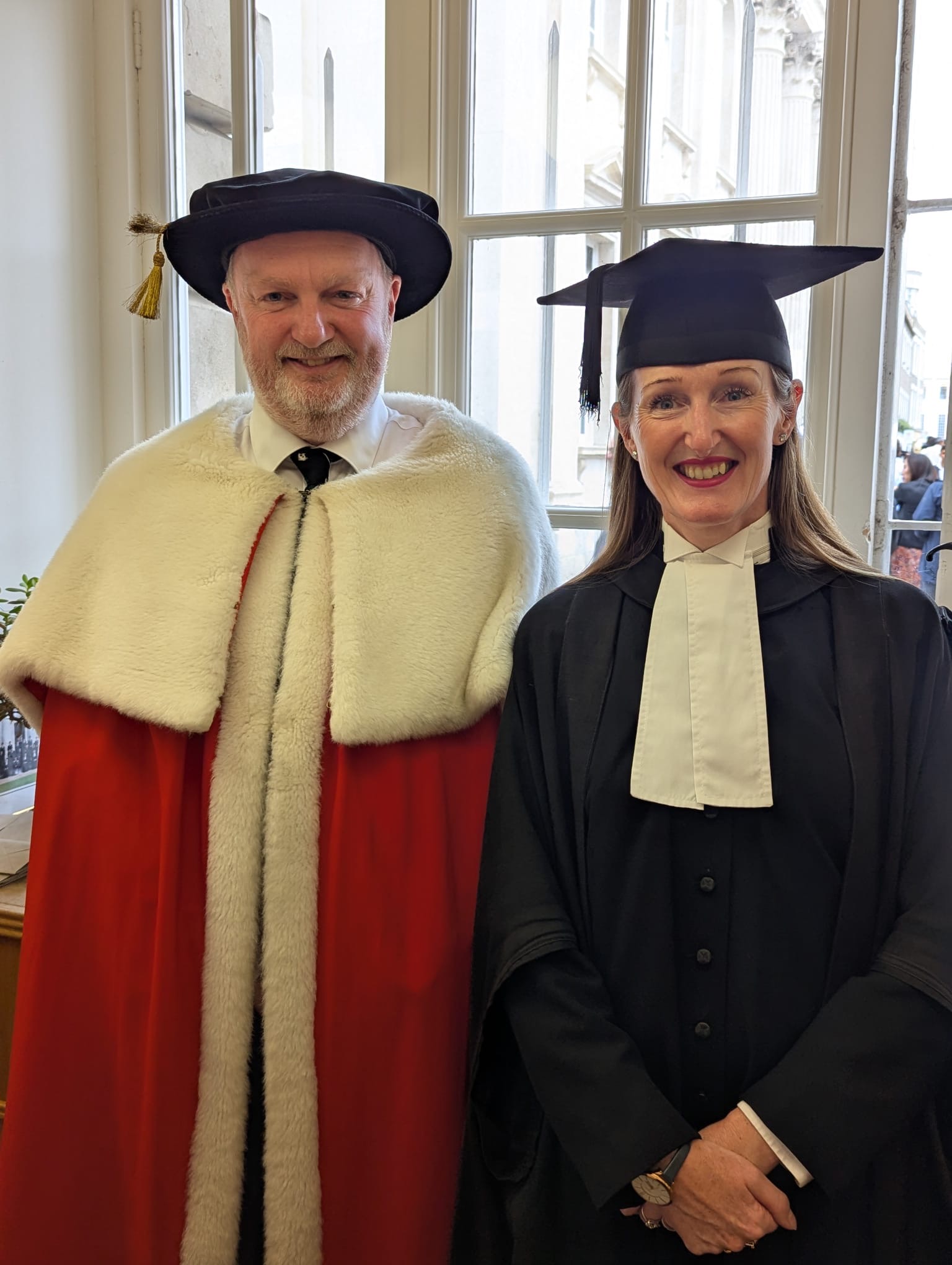Brian and Jacob spent the last academic year (2024-2025) pursuing an MPhil in Politics and International Studies as part of a postgraduate programme for Notre Dame alumni. This scholarship initiative is the result of a growing partnership between St Edmund’s College and the University of Notre Dame [USA], a partnership further strengthened by the signing of a second Memorandum of Understanding in April 2025. They took some time out of their studies to reflect on their year here at St Edmund’s.
From Notre Dame to Cambridge and now on to Harvard – what a journey! Can you tell us more about what that has been like for you so far?
Jacob: “I grew up in Wisconsin. A very small town and it was just wonderful then to get the opportunity to study at Notre Dame University. When I was there, I found a passion for political science. Then, I did a semester in London to study abroad, and that’s where I opened my horizons to studying in the UK. Through that programme, I was able to visit Cambridge for a day and fell in love. And when I applied and everything worked out, I knew that I wanted to be here. And now that I’ve been here, I’ve kind of gained the skills necessary to really make me competitive at other top universities in the US, and that’s led my way to Harvard where I’ll continue my studies.”
Brian: “I’m also from the Midwest. I’m from the Chicago suburbs, like many Notre Dame students. And I made my way here through the research that I did in my undergrad. I started becoming interested in rhetoric and how to not only speak publicly myself, but how to analyse the public speeches of figures that I admire. I came over here wanting to continue that research – given how inspired I was by it and found, thankfully, a Professor here who’s incredibly well versed in those studies. I’m now going back to law school at Notre Dame. I am very excited to be back at the place where I was shaped and moulded. It’s a real blessing to be able to have an international experience like this, one where I’m taken outside of a cultural context that I’m very familiar with and can learn more about the world only to go back and attend school at the same place that set me off to begin this journey.”
St Edmund’s aims to ‘empower global talent to shape the future’ and Notre Dame asks you to be ‘a powerful force for good in the world.’ Both have catholic foundations – how have these values shaped the partnership?
Jacob: “There’s a temptation in academia when you’re studying something to be very into it, to be researching it, but to forget why you are studying it. Why does it matter, how does this information promote the common good, how can it help improve the lives of people around you? So I think that these Catholic missions really centre in the study that you do but also the community that you build around you. I think that’s the powerful aspect of both mission statements and how they work together.”
Brian: “For me, it keeps me grounded. Instead of relying only on my rational capacity to think well and get good grades, and meet cool people – which are all important things that you should do when you’re pursuing higher education – whether at a school like Notre Dame or a school like Cambridge. But in both cases, models like these, which have a shared purpose in grounding you in very soulful work. Of thinking through tough questions, and connecting the answers that you come to, to those tough questions. You consider not only yourself and where you you are presently in the world, but your communities also. You think about the people you find yourself around, your families back home, the greater good, the world at large. It’s important to be able to not forget the reason why, as Jacob was saying, you’re studying these things and these sorts of mottos help you come back around to that purpose.”
What’s been unique about your time here at St Edmund’s and how has that helped you to thrive?
Brian: “It’s a very international community. It is a Catholic community, no doubt, but it’s a more international Catholic community. And so not only does that difference get borne out in, the food that we eat, the way that we see the world, but the way that we come to mass. Liturgical practices are a little different, the way that we celebrate our faiths. But overall, I think it’s an enriching experience to be able to find oneself in both communities. You’re with people that you would have never met otherwise. And so you can take the knowledge – especially in my case going right back to Notre Dame – that you acquire here and bring it back home to improve the community that you find yourself in.”
St Edmund's College is a mature college, so everyone is over the age of 21. And I think that that just is incredible because it brings people with wonderful experiences, whether they're prosecutors in their past life before coming back to academia or have been a business leader for ten or twenty years now getting their MBA. You just have people who have a wealth of experiences from multiple different places and that's something that's special to St Edmund's College.
The VHI Institute here at St Edmund’s provides reading groups and support for students. How has this connection to Catholic thought and tradition bolstered your studies?
Brian: “The transition for me was really natural. I majored in something at Notre Dame that is called the programme of Liberal Studies or PLS for short. We joke that it’s often referred to as ‘probably law school.’ So here I find myself following that trajectory too. At a place like St Edmund’s where there is an institution like the VHI, where I meet people like Brigid Graff and Thomas Graff who can facilitate our studies in small groups, and expose us to the questions that I tried to answer my very best in PLS. Although I spent four years studying those big questions, I still haven’t answered them. And there’s a lot more work that has to be done to be able to come to compelling answers to those sorts of questions. So to be able to work in those small groups, on similar questions with like-minded individuals is very helpful because it makes me feel at home. And it also makes me more confident that those questions can be answered in different ways by different minds.”
Jacob “I will say that the VHI to me is a kind of comfort food. It’s a built-in community of wonderful people from Brigid and Thomas Graff to Vittorio Montemaggi, who’s the VHI’s Director, and a bunch of other scholars who are affiliated. It’s been a wonderful opportunity to meet all of them. In addition, I think that the book clubs and seminars that are hosted are very familiar at least to me and my education at Notre Dame and it’s been nice to re-engage with those when a lot of the education I’ve received here is more lecture based. It’s given me both learning environments here. I’m glad we got to do that.”
Notre Dame says these partnerships not only ‘enhance academic quality’ but also create ‘strong global citizens capable of addressing global challenges.’ How has this programme helped you in ways that go beyond academia?
Brian: “I spent a lot of time trying things here that I never experienced at Notre Dame. Most especially, I spent some time on stage. I auditioned for a few productions and figured I would try my hand at acting. And it was a lot of fun. Of course, a lot of these actors, given what we said before about how international, not only St Edmund’s is, but the university itself is, so that the actors come from different backgrounds and bring different skills and talents to the stage. That was a nice global community that I got to engage with at various points throughout my time here.”
Jacob: “I think coming here, I’ve realised how kind of American-centric my education and upbringing has been. It’s been wonderful to explore beyond that. We have six other flatmates with us, and they’re from places such as China, France, Canada, the UK and Italy. So it’s just been wonderful to kind of get different perspectives not just on academic debates but on life. Having that exposure has been a wonderful part of this partnership with St Edmund’s.”
What advice would you give to prospective students considering St Edmund’s?
Brian: “It might sound cliche because everybody who is at Notre Dame has done very well throughout their academic careers. And anyone who’s considering coming to St Edmund’s, by extension, did really well at Notre Dame, is not only an intelligent and capable thinker, but somebody who likes to plan out their career trajectory. The point is, a lot of the people that would be in the position that we are in are planners, and are very deep thinkers about how they want their lives to be structured.
If I were to advise somebody who's thinking about doing this programme I would say have zero expectations. Just come here, live spontaneously, enjoy the experiences that come to you. Of course, think carefully about the classes you want to take and the clubs that you want to join. But, ultimately, some of the most fun that I've had here has been accepting random invitations to go hang out with people I've only met a couple days ago or auditioning for a play on a whim.
Jacob: “I think remaining open-minded when you walk into this programme is the most important thing. For example, my master’s dissertation evolved over the course of the year. But if I was set to doing what I wrote my application on, I don’t think I would have grown as much as a person and been as prepared for my next endeavour into a PhD program. And so just coming in with an open mind.”
Another example is I found real tennis, which is a very niche sport. It’s different from normal lawn tennis. It’s played indoors, but it was just something that I found on a whim. A friend of mine brought it up to me and then went to the activities fair, learned more about it, and that’s just been a bright spot for the year. But not something I would have planned for the summer before I got here. Echoing Brian’s point, an open mind with no expectations is the kind of the best way to make the most of this programme.”
About the Programme
In an increasingly interconnected and rapidly changing world, this graduate programme aims to enhance cultural understanding, global perspectives, and academic excellence, equipping Notre Dame participants with the skills to become strong global citizens capable of addressing global challenges.
The Von Hugel Institute helps to provide broader academic and intellectual context for Notre Dame Scholars at St Edmund’s, especially around questions related to Catholic thought and traditions. This initiative forms part of a wider partnership between Notre Dame University and St Edmund’s College.





